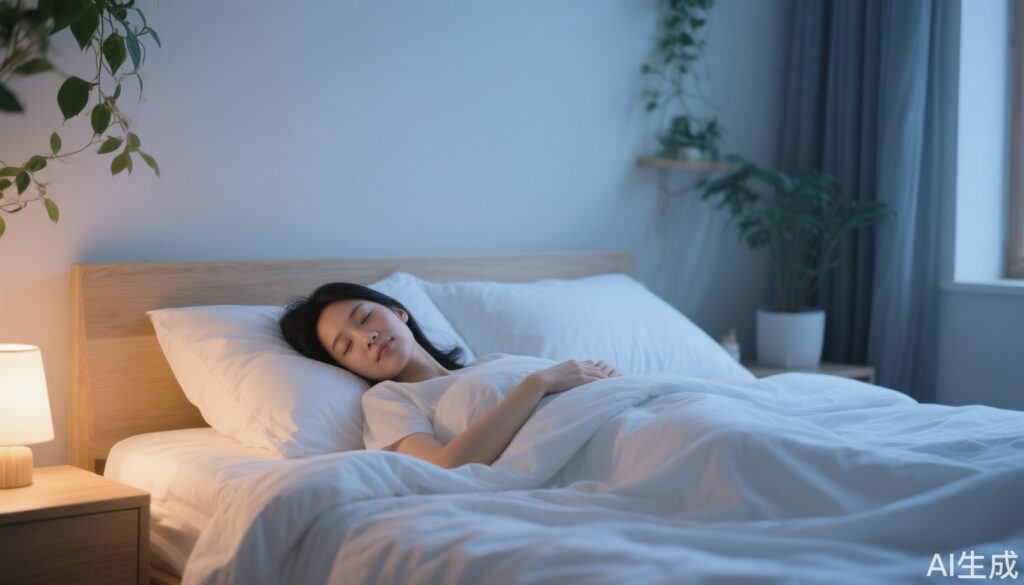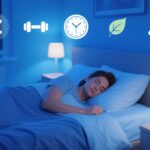Introduction: Why Sleep Matters More Than Ever
Sleep isn’t just a nightly ritual—it’s a cornerstone of health. For millions worldwide, tossing and turning is a frustrating norm. Poor sleep saps energy, muddles focus, and worsens overall health, yet most people believe solutions lie in expensive gadgets or medications. The truth? Science supports simple, free changes that can profoundly improve sleep quality.
Meet Jennifer, a fictitious 38-year-old marketing manager who found herself yawning through meetings and struggling to focus. After months of restless nights, she was skeptical that anything short of a prescription could help—until she tried five evidence-based, cost-free strategies recommended by sleep experts. Let’s explore how you, too, can sleep better starting tonight.
The Science of Sleep: What Do We Know?
Sleep is orchestrated by the body’s circadian rhythm, a 24-hour cycle that governs when we feel alert or sleepy. The National Sleep Foundation states that adults need 7-9 hours of sleep per night for optimal health, but nearly one-third of Americans regularly fall short (CDC, 2022).
Scientific studies link poor sleep to increased risks for heart disease, obesity, diabetes, depression, and even impaired immune function (Walker, 2017). Fortunately, research shows that lifestyle adjustments can significantly improve sleep outcomes, sometimes as effectively as medication for mild to moderate insomnia (Morin et al., 2020).
Common Myths and Harmful Sleep Habits
Let’s dispel some persistent myths:
– “Sleeping in on weekends makes up for lost sleep.” Not true—irregular sleep schedules disrupt your body’s clock.
– “Alcohol helps you sleep.” While it may make you drowsy initially, alcohol disrupts REM sleep and overall sleep quality.
– “More exercise always equals better sleep.” Timing matters; vigorous activity late at night can actually make it harder to doze off.
Misconceptions like these often lead to behaviors that worsen sleep, such as late-night screen use or consuming caffeine before bed.
Five Free, Evidence-Based Ways to Sleep Better
Let’s break down the top five strategies backed by science, all of which are free and easy to implement:
1. Establish a Consistent Sleep Schedule
Go to bed and wake up at the same time every day—even weekends. This helps regulate your biological clock. In Jennifer’s case, setting a 10:30 pm bedtime and a 6:30 am wake-up time transformed her sleep after just two weeks.
2. Create an Optimal Sleep Environment
Your bedroom should be quiet, dark, and cool (ideally 68–73°F/20–23°C). Use earplugs, blackout curtains, or a white noise machine to block disruptive sounds. Studies show that these changes can help you fall asleep up to 50% faster (Basner et al., 2014).
3. Get Moving—but Not Too Late
Regular exercise improves sleep quality, but avoid strenuous activity within two hours of bedtime. Opt for light stretching, yoga, or a walk in the afternoon or early evening.
4. Watch What You Eat and Drink
Skip caffeine (coffee, tea, cola) after 2 pm, and avoid spicy, heavy meals late in the evening. Instead, a light snack—like a banana or a glass of warm milk—can aid relaxation thanks to sleep-promoting nutrients like magnesium and tryptophan.
5. Practice Mind-Body Relaxation
Stress and anxiety are sleep’s worst enemies. Try deep breathing, progressive muscle relaxation, or guided meditation for 10–15 minutes before bed. Jennifer found that listening to soothing music and reading a light novel helped her wind down.
Expert Insights and Practical Tips
Dr. Michael Breus, PhD, a board-certified sleep specialist, notes: “Simple, consistent routines are the foundation of healthy sleep. Most people underestimate the impact of basic changes like dimming lights before bed or setting a regular wake time.”
Sleep psychologist Dr. Shelby Harris adds, “Don’t panic if you have a rough night. The more you worry, the harder it gets to sleep. Focus on what you can control.”
Table: Five Free Ways to Improve Sleep Quality
| Method | Description | Evidence |
|---|---|---|
| Consistent Schedule | Fixed bedtime/wake time daily | Improves circadian rhythm (Morin et al., 2020) |
| Sleep Environment | Quiet, cool, dark room | Reduces time to fall asleep (Basner et al., 2014) |
| Exercise | Regular, moderate activity (not late at night) | Enhances sleep efficiency (Kredlow et al., 2015) |
| Diet | Limit caffeine, avoid heavy meals late | Less nighttime awakening (Drake et al., 2013) |
| Relaxation | Pre-bed mindfulness, breathing exercises | Reduces anxiety, improves sleep onset (Cunningham et al., 2018) |
Case Vignette: Jennifer’s Journey to Restful Sleep
Jennifer implemented all five strategies. Within weeks, her sleep improved, energy returned, and she felt more productive. Her story is echoed in clinical studies—most people experience significant gains by focusing on sleep hygiene rather than quick-fix solutions.
Conclusion: Sleep Well, Live Well
Good sleep is within reach for everyone, often without medication or expense. By adopting these five free, evidence-based strategies, you can reclaim restful nights and productive days. Start small, be consistent, and remember: better sleep is one smart habit away.
References
– Centers for Disease Control and Prevention (2022). Sleep and Sleep Disorders. https://www.cdc.gov/sleep/index.html
– Walker, M. (2017). Why We Sleep: Unlocking the Power of Sleep and Dreams. Scribner.
– Morin, C.M., Benca, R. (2020). Chronic insomnia. The Lancet, 395(10221): 1126-1136.
– Basner, M., et al. (2014). Sleep and noise—effects on sleep quality. Sleep Medicine Reviews, 18(2): 109-117.
– Kredlow, M.A., et al. (2015). The effects of physical activity on sleep: a meta-analytic review. Journal of Behavioral Medicine, 38(3): 427-449.
– Drake, C., et al. (2013). Caffeine effects on sleep taken 0, 3, or 6 hours before going to bed. Journal of Clinical Sleep Medicine, 9(11): 1195-1200.
– Cunningham, J.E., et al. (2018). Mindfulness-based interventions for sleep problems: a systematic review. Current Sleep Medicine Reports, 4: 181-190.


